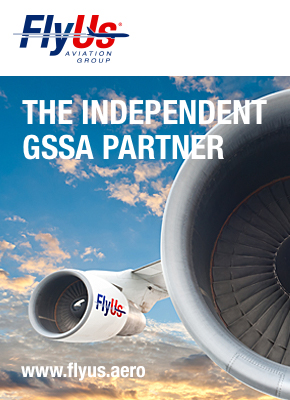
The 2016 Loadstar Watchlist comprises:
- Air France-KLM
- Lufthansa
- Panalpina
- UTi Worldwide
- Hapag-Lloyd
With hindsight, 2015 turned out to be a transitional year for most of the companies that we have added to our watch list in 2016.
These are: Air France-KLM, Lufthansa, Panalpina, UTi Worldwide and Hapag-Lloyd. The Loadstar team will closely follow their developments, as we believe they have approached a very critical stage in their corporate strategies at this critical economic juncture.
Air France-KLM and Lufthansa, in particular, could be at the crossroads.
More questions than answers
“Saudi Arabia-Iran rift could further disrupt oil prices,” MarketWatch wrote on Monday. Equity markets are plummeting today, but prices in the future markets indicate that oil trades could be more resilient than many had thought they would be in early January. This matters a lot in the transport industry at a time when fears about a China slowdown have returned with a vengeance.
If oil prices surge earlier than expected – as BP chief executive Bob Dudley hinted a few days ago – it could be tough times ahead for the core passenger businesses of Air France-KLM and Lufthansa, both of which have been bailed out by low fuel prices over the last 18 months. Both carriers bought time in 2015, with the black gold trading below $60 a barrel for most part of the year, but in spite of that Air-France-KLM shareholders recorded a significant paper loss (over 10%), while Lufthansa investors managed to get away with only a small paper gain, and it’s hard to image they actually enjoyed the ride. Now they are left with more questions than answers, in my opinion.
Strikes still weigh on their bottom lines, and have become more recurring than in the past – this is a problem that will likely persist for some time. In this context, Air France-KLM will have to model the economic impact of strikes as soon as next week if recent reports are to be trusted.
Even though economic profits surged on a reported basis in their trailing quarters – Lufthansa raised guidance for Ebit, while Air France-KLM sounded more upbeat on cash flows – there remains a high degree of uncertainty surrounding their business models and financials.
Take Lufthansa. There’s talk that it is looking for a new boss, and I wouldn’t be surprised if that turned out to be true, given its recent troubles and its poor ability in managing expectations. We correctly predicted a dividend cut in early 2015, and now the market seems to believe that the German carrier many need new leadership at a time when operational risk is apparent.
Airbus recently said it had to postpone the delivery of its new A320neo jet to Lufthansa until the beginning of 2016, which may not be a big deal, but “the management team of Lufthansa should have been tougher in the negotiations with Airbus to secure a better deal,” a German source close to the deal told me.
Cargo
While more optimism seems to surround Lufthansa Cargo these days, its finances remain under the spotlight, and rightly so. It is cutting costs, but nobody knows if that is enough in the current market. “Annual operating expenses, mainly staff costs, are to be reduced by at least EUR 40m by 2018,” Lufthansa said in its latest quarterly results, which showed anaemic growth figures in the cargo unit.
Well, if you think that Lufthansa Cargo is facing a difficult time that is because you are not familiar with the situation at its French rival. In fact, Air France Cargo’s Ebitda losses widened to €200m from €120m in the first nine months of 2015, and more than offset the combined profit gains in the maintenance and Transavia units.
Air France Cargo is looking for alternatives, but investment requires fresh funds, which come at a premium these days. As Lufthansa recently pointed out in its third-quarter results, the cargo operations of its French rival are expanding at a time when, in my view, they should shrink.
“Air France-KLM and China Southern Airlines have entered into a freight partnership, which will provide Air France-KLM’s cargo division, Martinair Cargo, with access to the main Australian cities via the freight hub in Guangzhou.”
“It can also use capacities in freighters on routes between Guangzhou and Hanoi or Ho Chi Minh City,” the German group said.
The restructuring of its “full-freighter activity is fully on track”, Air France-KLM argued in its third-quarter results, where it also acknowledged that demand is weak in a pricing environment “dictated by non-hedged players”.
Revenue per available ton kilometer (RATK) fell 11.5% on a like-for-like basis.
UTi, Hapag & Panalpina
Elsewhere, US 3PL UTi is likely to be one of the most exposed freight forwarders in the marketplace if a takeover by Denmark’s DSV doesn’t close successfully in the first quarter.
But where do we stand now with regard to the deal?
Well, there has been radio silence since late October, when some shareholders demanded a higher premium than that being offered by DSV, which valued UTi at $7.1 a share, for a total market value of $1.3bn, excluding net debt. As I argued in my previous coverage, DSV is paying a fair price to acquire UTi given its deteriorating financials and the fact that the latter is running out of options. In fairness, it doesn’t look like UTi management team is up for the fight, so I would expect DSV to carry the deal over the finishing line by the end of March.
DSV stock hasn’t performed particularly well in recent weeks, and currently trades around the level it recorded soon after it announced its acquisition of UTi. I would be surprised if the deal fell apart, but I am not preoccupied about DSV- it is a mean, lean machine and is truly encouraging that even during uncertain times it received the backing of key shareholders, with BlackRock announcing that it had raised its stake to almost 5.4% at the end of last year.
Talking of companies that have something to prove to their ailing shareholders, how not to mention Hapag-Lloyd, the world’s fourth-largest box line, which managed to get away with a heavily discounted IPO in 2015. We warned retail investors about the risk of investing in the offering last year.
Frankly, I do not know what lies ahead for Hapag, although its de-leveraging plan seems to be on track. Yet I know that the market leader Maersk needs options, and has the financial wherewithal to surprise investors, while the $2.4bn takeover of Singapore container shipping line owner Neptune Orient Lines by France’s CMA CGM will certainly force Hapag to deliver on its promises, and it could put additional pressure on margins.
Finally, Panalpina. As we expected, its shares have not managed to rally for weeks now, and it’s hard to predict better times ahead, really, given that air and ocean freight markets will almost certainly continue to be very challenging over the next twelve months at least. What is not difficult to predict, however, is that soft end markets could force it to take drastic action on is cost base, essentially cutting staff – and that would be an easy thing to do if a break-up occurs.




